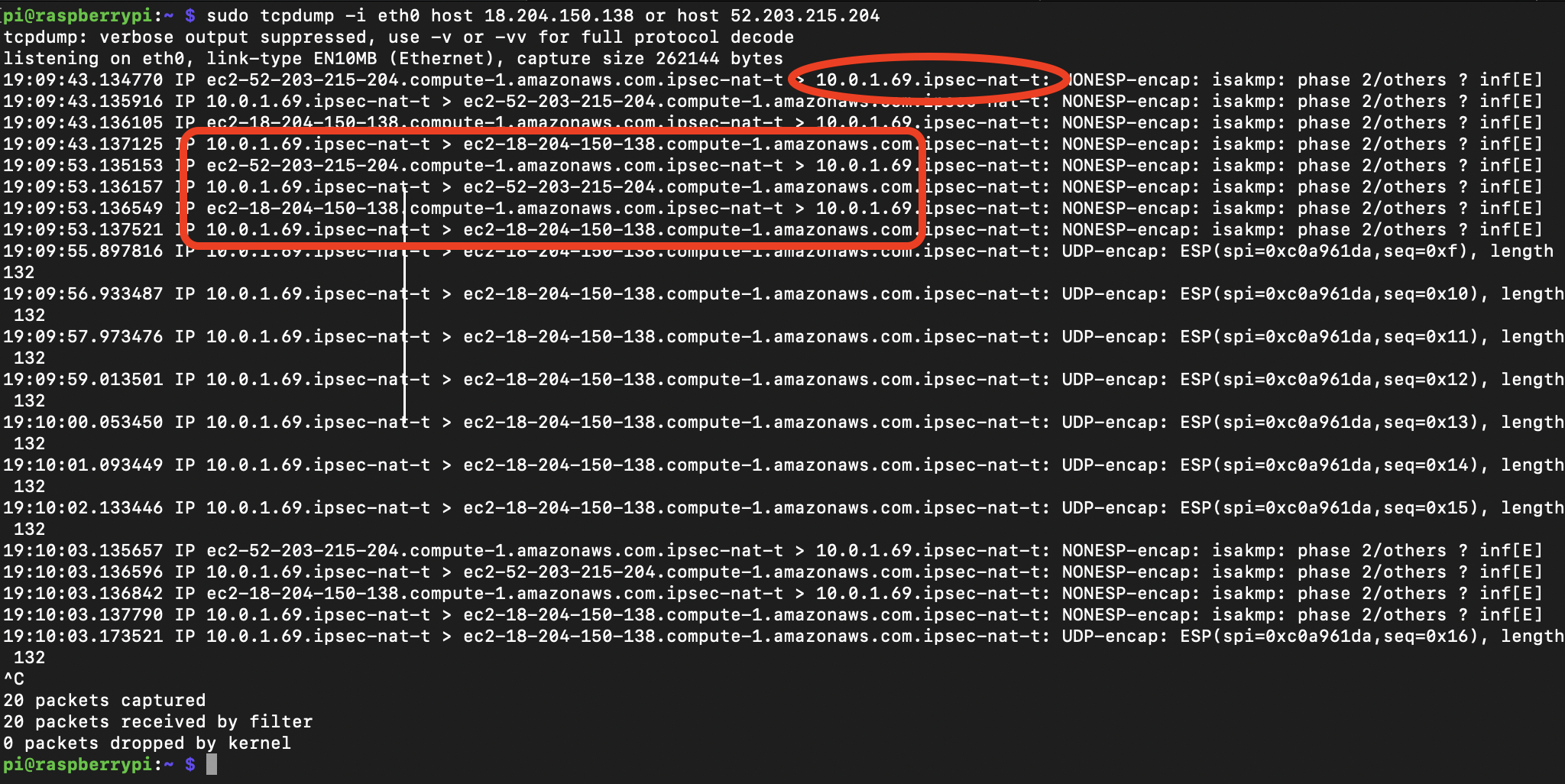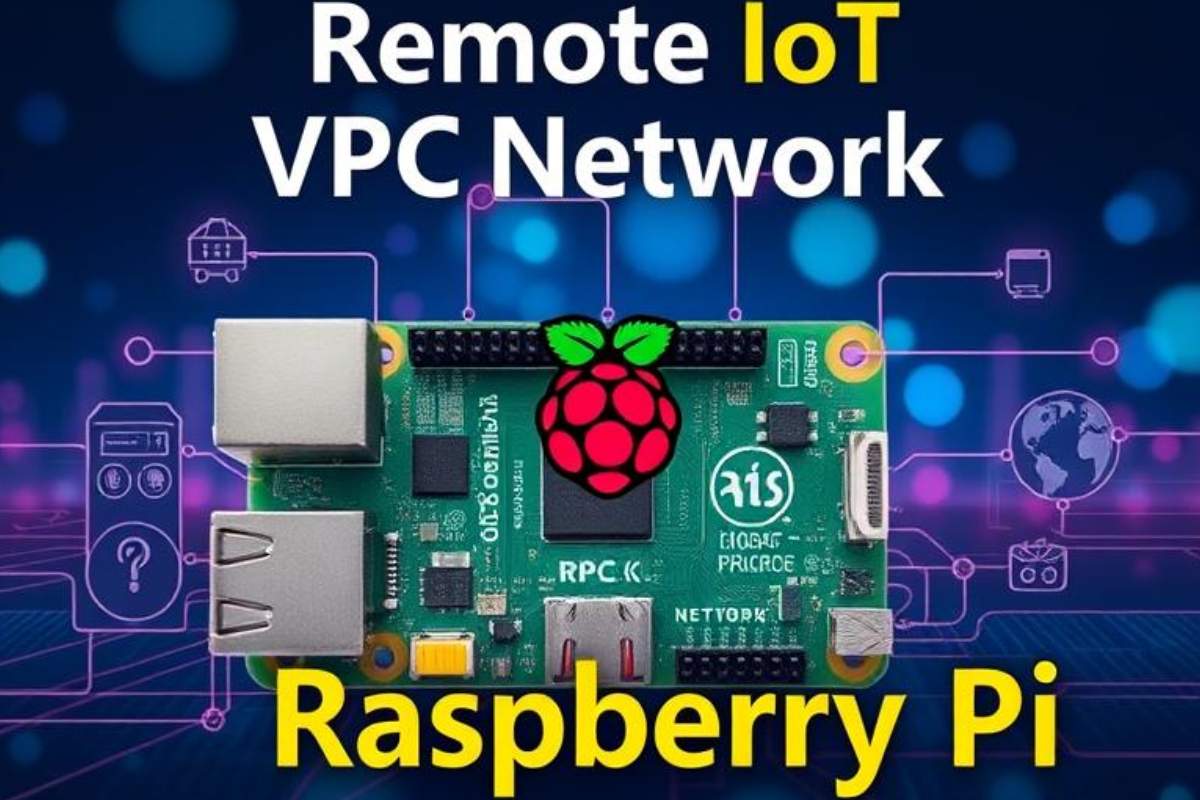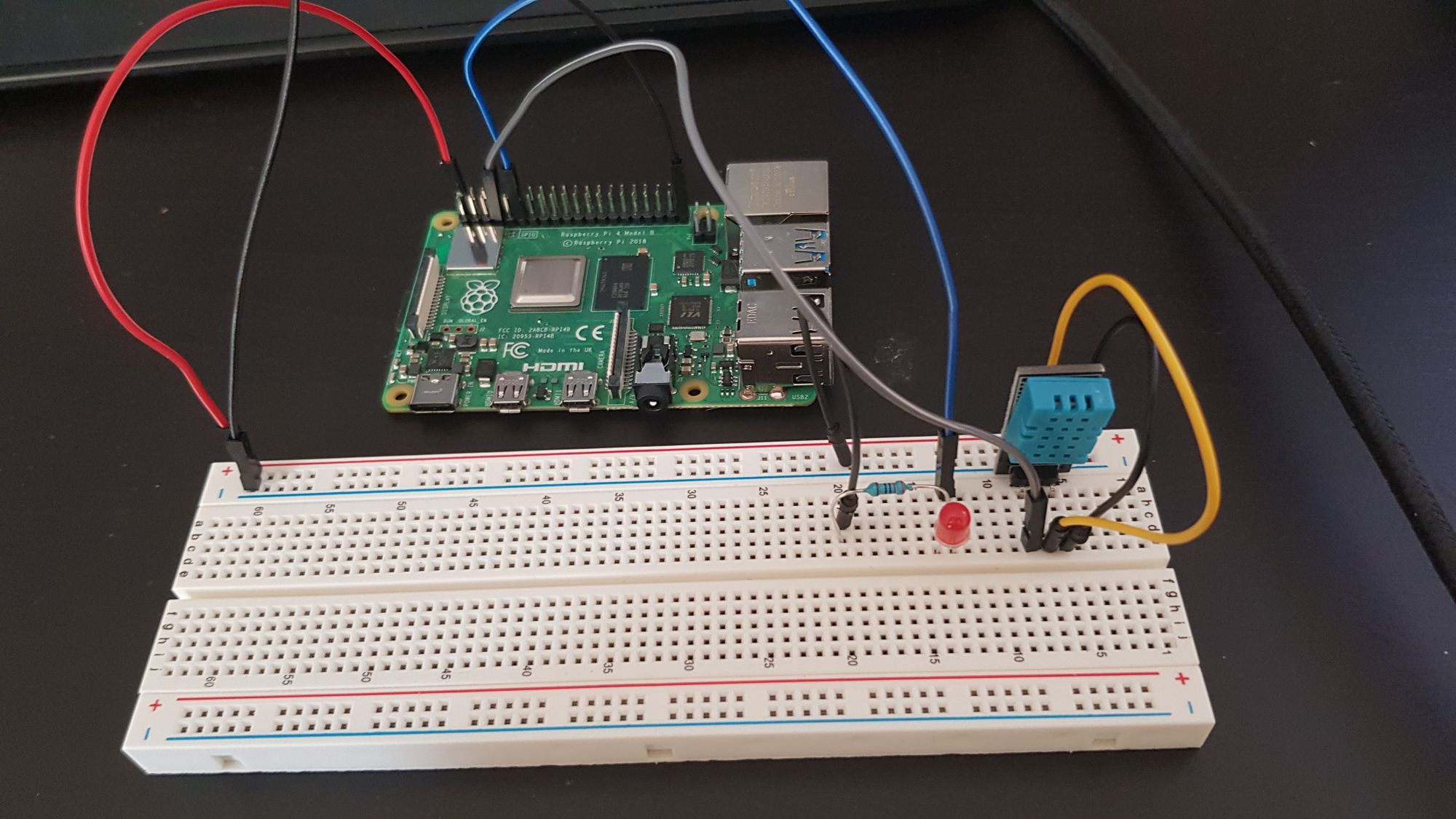RemoteIoT VPC Raspberry Pi - Your Connected Projects
Connecting tiny computers to bigger networks can seem like a big puzzle, but it really does not have to be. Getting your small devices, like a Raspberry Pi, to talk safely and securely with distant computer systems is quite achievable, so. This way of doing things brings a lot of good control and peace of mind for anyone wanting to work with their gadgets from afar, you know.
Think about having a small computer in one spot, maybe watching something or doing a little task, and you want to get to it from somewhere else, like your home office or a coffee shop, or even another country. Usually, that might mean opening up your home network to the outside, which is not always the safest choice, in a way. This approach, though, offers a much more private and organized path for those connections, which is actually pretty clever.
It helps make sure that only the right people and the right programs can talk to your little computer, keeping out unwanted visitors. This setup means your projects can run smoothly and stay protected, giving you a quiet confidence about your remote setups, more or less. It is a smart move for anyone looking to manage their little computer projects with greater safety and convenience.
- Tuff Insta Usernames The Ultimate Guide To Unique And Edgy Instagram Handles
- Everything You Need To Know About Sommer Rays Boyfriend
- Unveiling The Love Life Of Jason Robertson Who Is His Girlfriend
- Discover The World Of 300mb Dual Audio Movies A Comprehensive Guide
- Joe Cole The Life And Love Of An Actor His Wife And Family
Table of Contents
- Connecting Your RemoteIoT VPC Raspberry Pi
- What is a RemoteIoT VPC Raspberry Pi Setup?
- Why Consider RemoteIoT VPC Raspberry Pi?
- Setting Up Your RemoteIoT VPC Raspberry Pi
- How Does RemoteIoT VPC Raspberry Pi Work?
- What are the Benefits of RemoteIoT VPC Raspberry Pi?
- Keeping Your RemoteIoT VPC Raspberry Pi Secure
- Real-World Uses for RemoteIoT VPC Raspberry Pi
Connecting Your RemoteIoT VPC Raspberry Pi
Getting a small computer like a Raspberry Pi to work with a far-off network, specifically a Virtual Private Cloud, is a neat trick for many projects. It lets you treat your little device as if it is sitting right there in your own secure cloud space, which is pretty handy. This means you can control it, send it new instructions, and get information from it, no matter where you happen to be, you know. It creates a private path for your data, keeping it separate from the general internet traffic, which is a good thing for safety.
Many people find this setup helpful for tasks that need constant attention or for devices placed in hard-to-reach spots. For instance, if you have a sensor in your garden or a camera watching your pet, connecting it this way makes checking in on it simple and safe. It cuts down on the need for physical visits to the device, saving time and effort, so. This method really opens up possibilities for what you can do with your tiny computers.
The whole idea centers on making sure your small gadget has a direct, protected line to a larger, more powerful computer system that you control. This kind of connection is really quite helpful for keeping things running smoothly without constant worry about outside interference. It is a way to extend your reach and keep an eye on your small devices from a distance, which is actually quite clever.
- Taylor Mcgregor Married A Deep Dive Into Her Life And Relationships
- Ewa Klobukowska The Legacy Of A Polish Sports Icon
- Maui Chapman A Comprehensive Insight Into Her Life And Legacy
- Victoria Denise Gifford A Deep Dive Into The Life And Legacy
- Danica Patrick Kids Names Exploring The Family Life Of The Racing Icon
What is a RemoteIoT VPC Raspberry Pi Setup?
A RemoteIoT VPC Raspberry Pi setup is basically a way to connect your small Raspberry Pi computer to a special, private section of a bigger cloud network. Think of a Virtual Private Cloud (VPC) as your own private room inside a very large building, where only you decide who comes in and out. When you connect your Raspberry Pi to this private room, it means your device gets its own secure space on the internet, away from the public eye, you see. This makes it much harder for unwanted people to find or mess with your little computer.
The "RemoteIoT" part refers to the Internet of Things, meaning devices that connect to the internet to send and receive information, and the fact that you are managing them from afar. So, putting it all together, it is about having your little IoT gadget, like a Raspberry Pi, operating from a distant spot, but connected to your very own protected network area in the cloud. This arrangement gives you a lot of say over how your device communicates and what it talks to, which is pretty important for security, actually.
It is like giving your Raspberry Pi a secret phone line directly to your main operations center in the cloud. This line is not shared with just anyone, and you get to set the rules for who can call and what information can pass through. This setup is quite popular for projects where keeping data safe and ensuring constant access to your device from anywhere is a big deal, more or less. It helps create a controlled environment for your remote devices.
Why Consider RemoteIoT VPC Raspberry Pi?
You might wonder why someone would go through the trouble of setting up a RemoteIoT VPC Raspberry Pi. Well, there are some really good reasons, particularly if you are serious about keeping your information safe and having good control over your devices. One big reason is improved safety. When your Raspberry Pi is connected directly to a private cloud space, it is much less exposed to the dangers of the open internet, you know. This means fewer chances for bad actors to try and get into your system.
Another point is the level of control you gain. With this kind of setup, you can set up very specific rules about what your Raspberry Pi can do and who it can talk to. This is really useful for projects where you need things to work in a very precise way, without any surprises. It is like having a private club for your devices where you are the bouncer, deciding who gets in and what they can do once they are inside, so. This kind of arrangement gives you a lot of say over your device's actions.
Also, managing your devices becomes simpler. If you have many Raspberry Pis spread out in different places, connecting them all to a central VPC makes it easier to keep an eye on them and update them. Instead of checking each one individually, you can manage them from one spot in your cloud. This saves a lot of time and makes keeping your systems in good shape much less of a headache, which is pretty convenient, too. It really does make a difference for larger projects.
Setting Up Your RemoteIoT VPC Raspberry Pi
Getting a RemoteIoT VPC Raspberry Pi ready for action involves a few steps, but it is certainly doable for most people who have some familiarity with these small computers. The main idea is to make sure your Raspberry Pi can talk to your private cloud space as if it were right there in the same room. This often means setting up a secure tunnel or connection, which helps keep all the communication private and protected, you see. It is a bit like building a secret passageway for your data.
You will typically start by getting your cloud network ready. This means creating your own private cloud area with specific settings that allow for secure connections. Then, you prepare your Raspberry Pi. This usually involves putting the right software on it and telling it how to connect to your private cloud. There are various ways to make this connection happen, often using special programs that create encrypted links, which is pretty important for security, more or less.
It might sound a bit involved at first, but many online guides and communities can help you through the process. Once the initial setup is done, managing your Raspberry Pi from afar becomes much simpler and safer. This approach helps ensure that your remote projects are not only working but also well-guarded against outside prying eyes. It is a sensible way to get your little device connected securely, you know.
How Does RemoteIoT VPC Raspberry Pi Work?
So, how does a RemoteIoT VPC Raspberry Pi actually do its thing? At its core, it works by creating a secure, private link between your small Raspberry Pi and a specific section of a large cloud computer system. This link is often called a VPN tunnel or a similar kind of protected channel. When your Raspberry Pi sends information, it goes through this private tunnel directly to your cloud space, bypassing the regular, open internet traffic, so. This keeps your data out of sight from general observers.
Inside your private cloud space, you can set up other computer services that your Raspberry Pi can talk to. For example, you might have a data storage area or a program that processes the information your Raspberry Pi collects. Because they are all in the same private cloud, they can communicate very quickly and securely, as if they were all on the same local network. This makes everything run much smoother and safer, which is pretty useful, actually.
The private cloud acts as a central hub for all your remote devices. Each Raspberry Pi connects to this hub, and from there, you can manage them all. This means you can send commands, update software, or pull data from any of your connected devices, all through that one secure cloud location. It is a very effective way to keep your distributed projects organized and safe from afar, you know. It provides a solid foundation for remote operations.
What are the Benefits of RemoteIoT VPC Raspberry Pi?
The benefits of using a RemoteIoT VPC Raspberry Pi setup are quite clear, especially for anyone looking for reliability and safety in their distant projects. One major plus is the improved safety of your data and your devices. By keeping your Raspberry Pi within a private network in the cloud, you are building a strong wall around it, making it much harder for unwanted access. This helps protect any sensitive information your device might be handling, you see.
Another good point is the better control you get. You can fine-tune exactly what your Raspberry Pi can do and who it can communicate with, all from your cloud settings. This level of specific control means your device will only perform the tasks you intend, without any unexpected behaviors. It is like having a remote control that lets you manage your device's every move, which is pretty handy, too. This helps ensure operations go as planned.
Then there is the matter of ease of access and management. Once your Raspberry Pi is connected to your private cloud, you can reach it from almost anywhere in the world, as long as you can access your cloud account. This makes troubleshooting, updating, or simply checking on your device much simpler than having to physically go to its location. It is a very convenient way to keep your distant projects running smoothly and efficiently, more or less. This setup really simplifies remote oversight.
Keeping Your RemoteIoT VPC Raspberry Pi Secure
Keeping your RemoteIoT VPC Raspberry Pi safe from unwanted access is a very important part of the whole setup. Even though the VPC itself offers a good layer of protection, there are still steps you should take to make sure your little computer remains secure. One key thing is to always use strong, unique passwords for your Raspberry Pi and for your cloud accounts. Simple passwords are much easier for others to guess, so, you really do want to avoid them.
Regularly updating the software on your Raspberry Pi is another good habit. Software makers often release updates that fix security holes, so installing these helps keep your device protected against new threats. It is like getting new locks for your doors when better ones become available, you know. This practice helps maintain a good defense against potential issues.
Also, think about setting up extra security measures, like two-factor authentication for your cloud account. This means that even if someone gets your password, they would still need a second piece of information, like a code from your phone, to get in. This makes it much harder for unauthorized people to gain access to your private cloud space and, by extension, your Raspberry Pi. These steps collectively make your RemoteIoT VPC Raspberry Pi setup much more resilient against security challenges, which is pretty reassuring, actually.
Real-World Uses for RemoteIoT VPC Raspberry Pi
A RemoteIoT VPC Raspberry Pi setup has many practical uses in the real world, going beyond just hobby projects. For example, in agriculture, a Raspberry Pi connected to a VPC could monitor soil moisture and temperature in distant fields. This data could then be sent securely to a cloud system for analysis, helping farmers make better decisions about watering or planting, you see. It provides a way to collect important information from far-off places without much fuss.
Another area where this setup shines is in environmental monitoring. Small Raspberry Pis could be placed in remote forests or along rivers to collect information about air quality, water levels, or animal movements. Sending this data back to a central cloud network through a secure VPC means scientists can keep an eye on things without having to visit every location constantly. This helps gather important data for research and conservation efforts, which is pretty neat, actually.
For small businesses, a RemoteIoT VPC Raspberry Pi might be used for simple surveillance or inventory tracking in a remote warehouse. The Raspberry Pi could run a camera or count items, sending updates back to the business's private cloud. This allows owners to keep tabs on their operations from anywhere, ensuring things are running smoothly and securely. It offers a cost-effective way to extend monitoring capabilities to various locations, more or less. These are just a few examples of how this technology can make a real difference.
- Cha Eun Woo Military Service What You Need To Know
- Where Is Brandon Hantz Now A Deep Dive Into His Life After Survivor
- Pippa Grandison A Comprehensive Look Into Her Life And Career
- Sara Rose Grandalski A Rising Star In The Entertainment Industry
- Is Ella Langley Dating Riley Green A Deep Dive Into Their Relationship

Secure Connection between AWS VPC and a Raspberry Pi | Tales of a

RemoteIot VPC Network Raspberry Pi: Secure and Global IoT Connectivity

Remote IoT VPC Review Raspberry Pi: A Comprehensive Guide